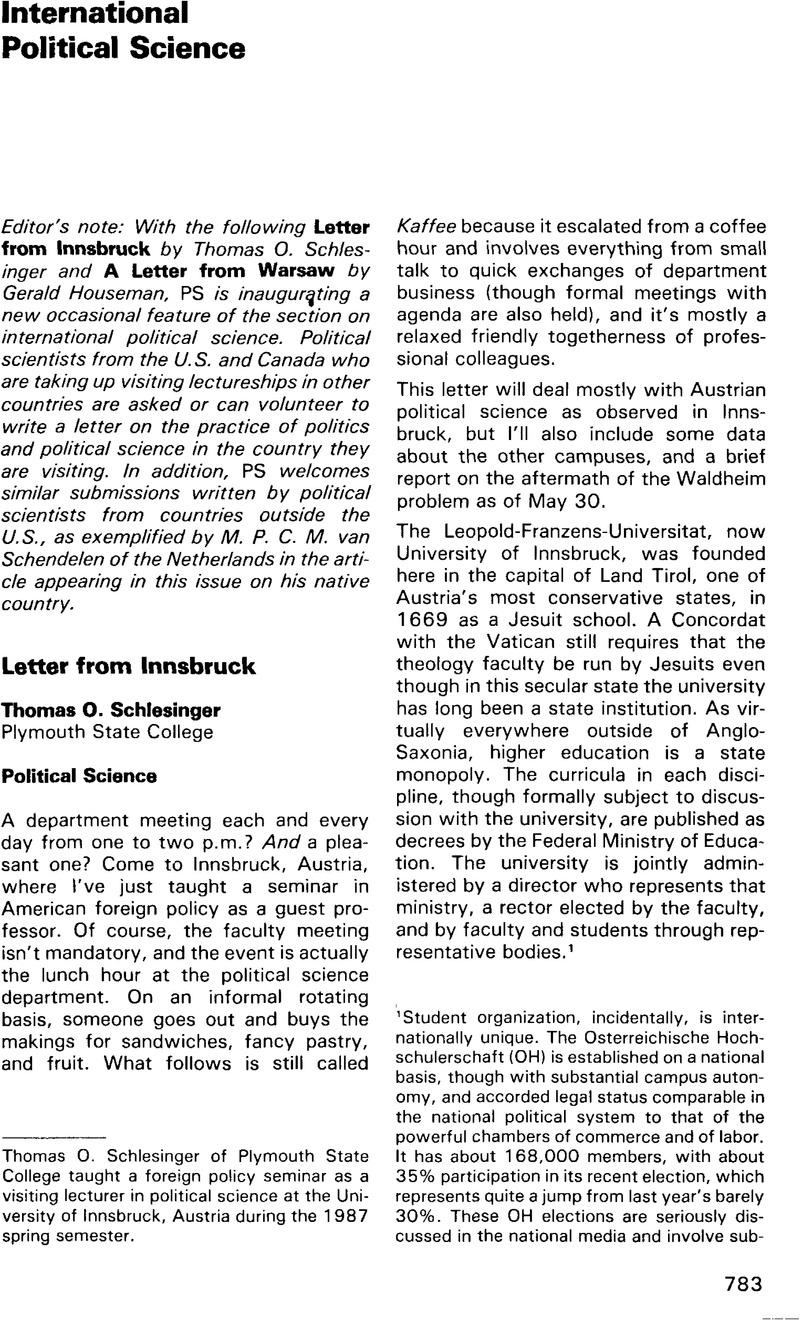No CrossRef data available.
Article contents
Letter from Innsbruck
Published online by Cambridge University Press: 21 November 2022
Abstract

- Type
- Letter
- Information
- Copyright
- Copyright © The American Political Science Association 1987
References
1 Student organization, incidentally, is internationally unique. The Osterreichische Hochschulerschaft (OH) is established on a national basis, though with substantial campus autonomy, and accorded legal status comparable in the national political system to that of the powerful chambers of commerce and of labor. It has about 168,000 members, with about 35% participation in its recent election, which represents quite a jump from last year's barely 30%. These OH elections are seriously discussed in the national media and involve subsidies and organizational roles for the national political parties. The May OH election resulted in a great landslide victory for the Aktions-gemeinschaft (AG), an environmentally oriented and relatively pragmatic group, mainly at the expense of right-wing groups, especially the monarchically inclined Junge Europaische Studenteninziative (JES).
It is a typically Austrian irony that both the winners and the losers were known to be financially supported by the Austrian People's Party, the OVP. The AG had taken a strong position and an active role in opposing Hain-burg, a hydroelectric power project on the Danube to be located in a nature conservancy area. (Environmental impact statements are still unknown here; it was to happen strictly by bureaucratic edict.) Moreover, the AG, in a show of democratic openness had supported the candidacy in the OH elections of Thomas Stern, a Jewish student who was not one of its members (and was even then not asked to join). Stern continued to oppose Austrian President Kurt Waldheim, whose party, the OVP, as noted above helps to fund the AG.
2 The Innsbruck department makes a significant contribution by providing a home and substantially supporting the Society for Political Information (the German name literally means enlightenment, too presumptuous a connotation in English). The Society is explicitly designed to combat right-wing extremism, ethnic and other social prejudices, such as against women, gypsies, and the homeless or vagabonds. Among its activities is a yearly bus trip to Auschwitz. Participants for this pilgrimage are found from a broad spectrum of the Austrian public, with possibly some emphasis on teachers. Connected with the work of the Society are young political science scholars interested in such fields as survey research, political theory and history, and political socialization and education. Somehow the world press covering the Wald-heim affair (and related discussion of Austrian right-wing politics and anti-Semitism) never sought out the Society, nor some other activities in Austria devoted to opposing these trends.




